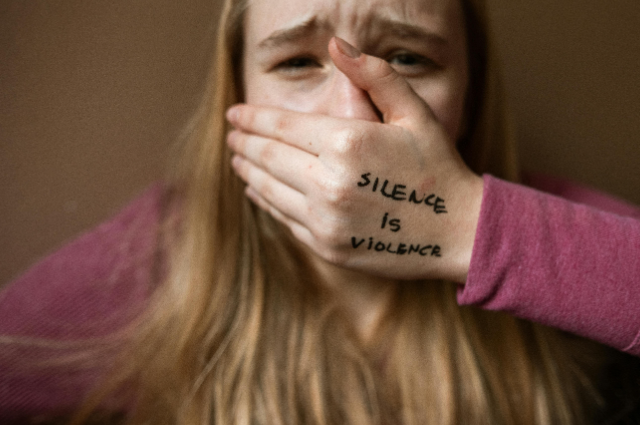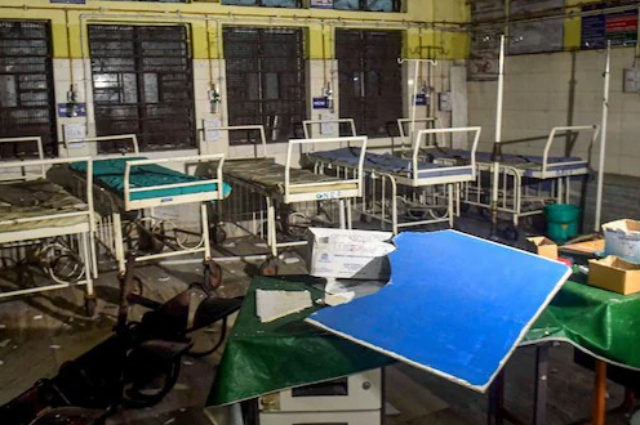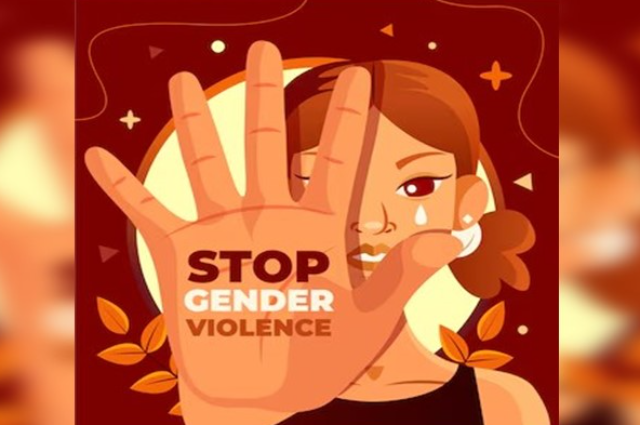The recent rape and murder of a female doctor at RG Kar Hospital in Kolkata have sparked outrage across India. This horrific incident has ignited national anger, but it also highlights a troubling reality as many cases of sexual violence go unreported and unnoticed everyday. These acts of violence occur both within homes and in spaces considered safe. While public outrage tends to focus on selecting high-profile cases, the sad truth is that violence in all its forms is widespread in India. During an Independence Day address, the Prime Minister urged society to seriously reflect on the atrocities faced by women by stating, “As a society, we should seriously dwell upon the atrocities being meted out to our mothers, sisters, and daughters.” Now is the time to pay attention to this call and confront the issue head-on.
Reactionary Policies and Legal Challenges
India's approach to addressing sexual violence has largely been reactive. Legal reforms have often come in response to heinous crimes such as the Delhi gangrape in 2012 and the gangrape of a minor in Kathua in 2018. These incidents led to calls for harsher punishments by resulting in changes to the law that included severe penalties such as life imprisonment and the death penalty for certain sexual offences. However, these measures were implemented without fully considering the capacity of institutions to carry out swift and fair trials. The state's focus on quick solutions was evident when, in 2019, four men accused of gang rape and murder in Hyderabad were killed in an encounter. The public celebrated this as a form of revenge, overshadowing the need for true justice and due process.
The Burden on Women

Photo by Mika Baumeister on Unsplash
One of the most troubling aspects of this issue is the way society places the burden of safety on women. Rather than addressing the root causes of sexual violence, women are often told to look at their behaviour—avoid going out after dark, refrain from wearing certain clothes and be cautious about who they interact with. This mindset reflects an acknowledgement even by the state that the necessary work to create a safe environment for women has not been done. Instead of ensuring that women can live without fear, the responsibility is unfairly shifted onto them.
The Hypocrisy in Addressing Women's Issues
When it comes to laws designed to protect women such as those against dowry deaths and domestic violence, the dominant narrative often paints women as manipulative and unfair to men. While sexual violence against women is condemned with references to their roles as "mothers, daughters, and sisters," these same women are frequently accused of dishonesty when it comes to other issues. What is missing from these narratives is the recognition that women are equal citizens, deserving of rights and protections regardless of their roles in men's lives.
The Need for Broader Discussions on Criminal Justice
In his speech, the Prime Minister also called for a wide discussion about the criminal justice system. This is a crucial conversation, especially in light of recent cases where wrongful convictions have come to light. In March 2024, a man from a socio-economically marginalized community was acquitted after spending over a decade on death row. His case was one of many where forensic evidence eventually forgiven the accused by revealing that the real perpetrators were never caught. In 2023 alone, 36 prisoners sentenced to death were acquitted by high courts across the country that’s stressing the flaws in the criminal justice system. These acquittals raise serious concerns about whether the actual criminals are being apprehended at all.
The recurring incidents of sexual violence and the flaws in our criminal justice system demand a long-term and comprehensive approach. It is not enough to react to individual cases with calls for harsher punishments. We must address the underlying societal issues by ensuring justice for all and work towards creating a safe and equitable environment for women. Only then can we begin to truly combat the unescapable culture of violence in India.
In a recent speech, the Prime Minister emphasized the need for an extensive conversation about crime and its implications. This is a crucial topic that deserves our attention.
The Case of a Wrongfully Convicted Man
In March 2024, a man sentenced to death who belonged to a socio-economically disadvantaged community was finally acquitted after spending over ten years on death row. His acquittal came after the third trial revealed that forensic evidence did not link him to the crime as the DNA found at the scene did not match his. His initial trial had lasted about nine days, reflecting the hurried nature of the judicial process. Unfortunately, his situation is not an isolated incident. In 2023 alone, high courts acquitted 36 individuals who had been wrongfully sentenced to death by trial courts.
These acquittals raise a critical concern that the real perpetrators of crimes may not even be apprehended. The current focus on accelerating justice often overlooks the deeper issues within the criminal justice system including the inefficiencies in police work, forensic laboratories, and the judiciary itself. Problems such as case backlogs, insufficient manpower, inadequate training and lack of quality resources persist. Thereby, undermining the pursuit of true justice. Quick fixes do little to help victims and survivors instead, they cover the underlying failures of the system.
The Need for Long-Term Solutions
The government's reluctance to invest in sustainable, long-term solutions—whether in institutional reforms or addressing social issues—has diverted us from achieving genuine justice. Instead of merely reacting to incidents of violence, we must develop a comprehensive understanding of the factors that contribute to crime.
Our approach to criminal justice often relies on isolated incidents rather than recognizing patterns of systemic violence. This leads us to perceive these events as irregularities, committed by individuals who are somehow different from the rest of society. Such a perspective is misleading and dangerous. To effectively combat sexual violence, we must address the root causes that create an environment where women feel unsafe in various aspects of their lives.
Unless we confront these systemic issues, we risk socialising isolated acts of violence with broader societal problems. This could result in increasingly severe punishments for individuals often without clear evidence of their guilt. While feelings of anger and the desire for vengeance are understandable but policies driven by these emotions are not the solution.
We must engage in a thoughtful and thorough discussion about the criminal justice system. We must seek to understand the complexities at play and work towards solutions that prioritize justice for all, rather than quick fixes that fail to address the core issues.
A Heartbreaking Loss: Remembering a Promising Young Doctor
Sitting on the steps of his three-storey home, a heartbroken 62-year-old father reflects on the life of his daughter who was a junior doctor at a Kolkata hospital and just a day after her tragic rape and murder. Tears stream down his face as he recalls the struggles of their earlier days when he sometimes could not afford to buy her the pomegranates she cherished.
A Journey from Struggles to Success
The father recalls their financial hardships during his daughter’s childhood. However, his business of stitching and selling school uniforms eventually flourished, allowing them to move to Kolkata and build a home. The nameplate outside their house bears only his daughter’s name which is a testament to her determination and success in becoming a doctor against all odds. “Her mother and I were immensely proud of her,” he cries, “but now all we want is to have our only child back.”
Last Moments and Heart-Wrenching Discovery
The doctor’s mother shared that she last spoke to her daughter at 11:15 PM on August 8th. During that call her daughter mentioned that she was having dinner. The next morning when the mother tried to call again, there was no answer. She assumed her daughter was busy at work unaware that her life had been tragically cut short. A family member revealed that the young doctor had initially enrolled in Malda Medical College but chose to attend the College of Medicine & JNM Hospital in Kalyani which was closer to home. After earning her MBBS degree in 2018, she began her postgraduate training at R G Kar Hospital in 2022.
On August 9, her lifeless body was found in the seminar hall of R G Kar where she had allegedly been raped and murdered in the early hours. The Kolkata Police have arrested a civic volunteer named Sanjay Roy in connection with this horrific crime.
Colleagues Unite in Grief and Demand Justice
At R G Kar Hospital, her colleagues are standing together by calling for a thorough investigation into the events surrounding her death. They remember her lovingly, describing her as a proactive and friendly colleague who never had conflicts with anyone. Two of her co-workers emphasised her exceptional counselling skills by noting that she was often chosen to speak with anxious patients’ families due to her empathetic nature. Despite her demanding schedule, she kept a diary filled with her thoughts and dreams and was active on social media until her account was deleted to prevent misuse of her personal photos.
A fellow postgraduate trainee recalls how they first met in 2022, noting that she was the only woman in their group of nine. They bonded over their shared passion for medicine, especially after she assisted him during a medical procedure. He expressed his anger and sadness, remembering that she was murdered in the very seminar room where they had shared meals and attended classes just a day before.
A Community in Mourning
Her colleagues shared that she used to take breaks in the sleep study room until renovations forced her and other night-shift doctors to use the seminar room instead. One colleague voiced his outrage over the sharing of her body’s photo on social media, questioning whether she did not deserve a dignified farewell. As the community mourns, her fellow postgraduate trainee reflects on how he had been looking forward to celebrating Durga Puja at her house where she traditionally organized festivities and provided religious offerings.
A former teacher from her MBBS program, who also attended R G Kar had described her as a sincere and intelligent student with a bright future. She met the grieving parents on Raksha Bandhan, on August 19th and expressed her disbelief that such a tragedy could occur at a place where she had once studied.
Back in her neighbourhood, local shopkeepers who watched her grow up struggled to comprehend the loss. One shopkeeper expressed disbelief, saying, “I cannot imagine that she died in this manner.” Another recalled how her face would light up whenever someone called her “doctor.”
As her family had plans for her marriage after the upcoming Durga Puja, her father, who had recently bought a car to make her commute easier had never imagined that they would lose her in such a horrific way. This tragedy has left a deep void in the lives of those who loved her and the community continues to seek justice for a promising life that was so brutally taken.
The Ever-Present Fear: Addressing Violence Against Women

In the aftermath of a horrific rape and murder of a young doctor in Kolkata, a post on X captured the collective fear many women feel by stating, "I AM NOT Nirbhaya. Neither was she... We are all scared of all men all the time." This stark reflection is a painful reminder of the deep-seated fear that fills the lives of women and especially in the wake of the infamous December 2012 gang rape that shocked the nation. Since that tragedy, significant efforts have been made to strengthen laws against sexual violence. Yet, the question remains: why do these laws still fail to serve as an effective warning?
The Limits of Legislation: A Broader Perspective
One critical insight is that laws, when applied in isolation cannot be expected to regulate or reshape men's morality. The persistent violence against women is not just a failure of legal frameworks but also reflects the broader leniency surrounding related crimes. For instance, the careless enforcement of laws around other serious offences contributes to a culture where such violence remains rampant.
The Grim Reality of Dowry Deaths
Statistics from 2022 reveal a disturbing truth: India witnesses 6,516 dowry deaths annually—equating to one woman losing her life every 90 minutes. A dowry death refers to the unnatural death of a married woman often resulting from either murder or suicide due to relentless cruelty inflicted by her husband and in-laws. Even more distressing than the complete number of these deaths is the alarmingly low conviction rate. This is often due to the prevailing practice of the accused paying "blood money" to the victim's family, a practice that law enforcement and the courts frequently allow as a compromise.
Domestic Violence: An Underrated Crime
Domestic violence is arguably the most underreported and underestimated crime by affecting women across all socio-economic backgrounds. The relevant legal sections prescribe punishment but these provisions are often inadequately enforced that’s allowing the cycle of violence to continue unchallenged.
The Cycle of Violence: A Case Study
It is therefore, unsurprising that the first suspect apprehended in the Kolkata rape and murder case had a documented history of violent behaviour toward his wife even assaulting her when she was three months pregnant. Despite two complaints, no appropriate legal action was taken against him at the time. By condoning or restraining the severity of violence against women, society inadvertently perpetuates a culture where men feel reassured to commit further acts of brutality by believing they can escape accountability.
This chilling narrative highlights the urgent need for a more robust and holistic approach to tackling violence against women. Strengthening laws is only part of the solution. It is equally important to address the cultural and societal norms that enable such violence to persist. Only then can we hope to create a safer environment for all women, where fear is no longer a constant companion.
A Cry for Justice: Reforming the Legal System to Protect Women
The recent incidents of sexual violence against women in Kolkata have once again highlighted the urgent need for significant reforms in India's legal system. The careless bail norms and the slow pace of justice often encourage perpetrators by allowing them to commit more terrible crimes.
The Culture of Patriarchy
Many women who report crimes against them are met with disbelief or even ridicule. This attitude sends a dangerous message to potential offenders, suggesting that they can get away with their actions. The case of the man who violently assaulted his wife multiple times, despite her complaints is an example of this systemic failure. Sanjoy Roy who was a Kolkata police volunteer had a background of psychological disturbances in his personal life as he used to mistreat women even in his own family and even after that he was recruited and given access to multiple rooms in the hospital. Before getting him recruited why was not there a background check of his past? , why he was given access to so many places in the hospital? , Are recruitments happening in Kolkata police volunteers jobs like this ? ; wherein no such scrutinization of candidates past history is not being even taken care. Times have come, where the protectors have now themself become conspirators.
Categorized Penal Provisions for Different Crimes
To effectively address the issue of violence against women, the legal system must recognize the varying degrees of severity of such crimes. Forcibly, stalking a woman with the intent to commit sexual assault should not be treated the same as milder forms of harassment. Victims should not be forced to wait for more severe charges to be pressed before they receive justice.
The slow pace of trials in India's courts often leads to victims losing faith in the legal system. Many cases of dowry death and cruelty by husbands remain pending for years with a shockingly low conviction rate. This lack of accountability undermines the deterrent effect of the law.
To ensure swift justice for victims of sexual violence, India must establish specialized fast-track courts dedicated to handling these cases. These courts should have the necessary resources and expertise to expedite investigations and trials.
Another significant issue is the prevalence of extrajudicial compromises forced upon victims by their families or communities. These compromises often result in the perpetrators going unpunished, reinforcing a culture of Patriarchy. The courts must take a strong stance against such practices and ensure that victims are not pressured to settle cases outside the legal system.
The ongoing crisis of violence against women in India demands a comprehensive revisiting of the legal system. By implementing stricter bail norms, graded penal provisions, fast-track courts and measures to prevent extra-judicial compromises India can create a more just and equitable society where women feel safe and protected.
. . .
References:



